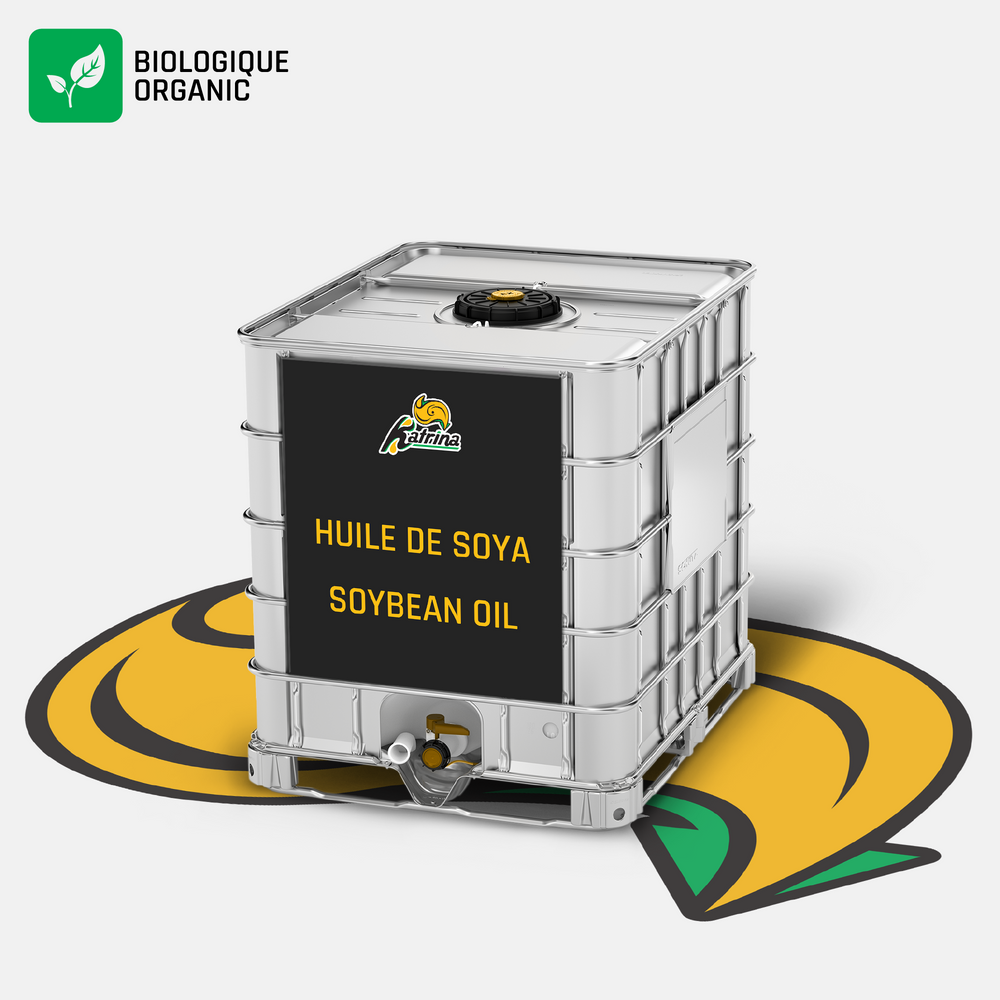Why Buy Organic Soybean Oil?
In the realm of cooking oils, organic soybean oil is at the top of the market. As consumers grow more mindful of their dietary choices, the demand for organic options has witnessed a surge. Let's delve into the reasons behind the popularity of this vegetable oil in homes, restaurants, and food manufacturing.
The Pros of Organic Soybean Oil
Here's our analysis of why organic soybean oil is so popular with consumers. As a business, this information is key. You can also check the updated price of soybean oil for an important consideration.
Natural and Unadulterated
Organic soybean oil is derived from soybeans cultivated without synthetic pesticides or fertilizers. This unaltered state appeals to those who prioritize minimally processed and purely organic ingredients.
Health Consciousness
Choosing organic products, including soybean oil, is often seen as a commitment to a healthier lifestyle. Consumers believe it aligns with their desire for a diet that is free from synthetic chemicals, promoting overall well-being.
Transparency and Sustainability
Opting for organic products is a choice for transparency and sustainability. It reflects a commitment to agricultural practices that prioritize the health of the soil, biodiversity, and the environment.
Environmental Stewardship
Organic farming practices, embraced in the production of organic soybean oil, are perceived as more environmentally friendly. This approach promotes soil health, reduces pollution, and contributes to a more sustainable food system.
The Historical Context
Soybeans, integral to global agriculture for centuries, have now taken a turn towards organic cultivation. As a response to concerns about synthetic inputs in agriculture, organic soybean oil has emerged as a nature-aligned choice, stepping away from the era of genetically modified organisms.
For those seeking a healthier and more sustainable diet, organic soybean oil provides a comforting choice. It aligns with traditional farming practices, addresses concerns about the environmental and health impacts of synthetic inputs, and allows consumers to make choices in line with their values.
What Can Organic Soybean Oil Be Used For?
Organic soybean oil proves to be an exceptionally versatile ingredient in the kitchen, well-suited for an array of culinary applications. With its neutral flavour profile and high smoke point, organic soybean oil can be used for:
- Sautéing
- Frying
- Baking
- And more
The heart-healthy attributes of this oil make it a stellar choice for crafting balanced salad dressings, marinades, and as a base for homemade mayonnaise. Its light texture ensures seamless integration into diverse dishes, allowing the intrinsic flavours of other ingredients to shine. Beyond its role as a cooking medium, organic soybean oil stands as a practical and professional culinary companion, contributing both nutritional value and culinary excellence to a wide array of recipes.
Organic Soybean Oil in Popular Products
This organic variant of soybean oil has found a notable presence in various popular food products, meeting the escalating consumer demand for healthier and responsibly sourced ingredients. It's commonly found in:
- Salad dressings
- Mayonnaise
- Cooking oils

As well as other products that prioritize an organic and natural label. Moreover, it plays a vital role in the creation of snack foods such as potato chips and popcorn, providing a mild flavour and versatility in achieving the desired crispness.
In many baked goods, including cookies and crackers, organic soybean oil is a key ingredient, offering a heart-healthy option without compromising on taste or texture.
Renowned brands such as Annie's, Newman's Own, Kettle Brand, and Smartfood are recognized for incorporating this type of oil into some of their products, aligning with the increasing consumer preference for organic and responsibly sourced ingredients.

As a restaurant or food manufacturer, choosing organic soybean oil is a great option to appeal to a wider consumer base. If you're interested in sourcing this type of oil, we're here to help! Check out our options for organic soybean oil and request a quote here.







